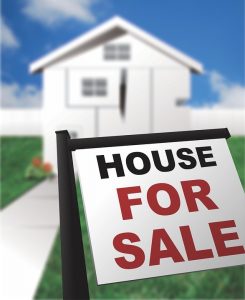
Photo source: http://bit.ly/2nartS9
Before buying a home, it’s essential to know whether it’s freehold or leasehold. It’s the difference between owning your property outright and having a landlord.
Freehold
Owning a property freehold means you own the whole building and the land it stands on. Most houses – not ones divided into flats – are sold on this basis. When buying a freehold property, you are listed on the land register. You’re responsible for any and all costs incurred to maintain the fabric of the building, common parts and land.
While this might sound like a big responsibility, the benefit is that you won’t need to pay ground rent, service charges or management fees, and you’re able to modify the property to your tastes – seeking planning or building permission where required.
Leasehold
Leasehold means you effectively lease a property for a number of years. This is common for flats or apartments, and less common with houses. You will have bought and signed a lease agreement for the property from the freeholder, often referred to as the landlord.
When buying a leasehold, the more number of years on the lease, the better. Leases can last as long as 999 years! After this time, the lease reverts back to the freeholder. Avoid buying properties with 80 years or less left on the lease. Securing mortgages on these properties is difficult and you may have to shell out for expensive renewal fees if you wish to remain in the property after the lease has expired.
Leasehold limitations
You don’t own the property outright when you buy a leasehold. As a result, you may face restrictions and additional charges.
For example, you’ll need the freeholder’s permission to do certain things. This is known as requesting a ‘licence for alterations’. From asking to keep a pet, to seeking permission to knock walls through, actions you may need to ask the freeholder about can vary from property to property.
Ground rent and service fees apply, too. These annual fees are charged to the leaseholders for the maintenance of the building. Primarily, these fees are put towards building insurance, but also cover the upkeep of common areas, entrance ways, building security or roofing and structural repairs.
The only time this is not the case is if the leaseholders have been awarded the Right to Manage.
What is Right to Manage?
Unhappy with how the freeholder’s managing agents look after the property, or are spending the service charge funds? You could apply to take over certain building management duties from the freeholder. This is known as ‘The Right to Manage’ and is awarded by the First Tier Tribunal.
To gain Right to Manage responsibilities, multiple leaseholders need to apply collectively. For more information on qualifying for Right to Manage, visit the Leasehold Advisory Service.
Share of freehold
Should you choose to buy a leasehold property, in many cases you may be eligible to collectively purchase the freehold. ‘Collective enfranchisement’ is when a group of leasehold property owners act together to buy the freehold of the property. Owning the freehold is an attractive prospect, because you’ll have more freedom over your property. Sounds great, but the road to get there is complicated.
We strongly recommend researching the complexities of owning a share of the freehold, seeking legal advice before making your first move. Sites like gov.uk and lease-advice.org are great starting points.
 rly a tenth on last year. The average price was up 0.7% to £297,587.
rly a tenth on last year. The average price was up 0.7% to £297,587.